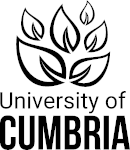
Rewilding’s global expert reveals a 20-year journey towards acceptance
When the International Union for the Conservation of Nature (IUCN) talks rewilding the world listens to a global authority steered by research from a renowned Cumbrian expert.
Professor Ian Convery’s work has helped shaped rewilding thinking within the widely respected organisation but is his focus on local species introductions in some of the UK’s most deprived areas that have given most satisfaction to University of Cumbria’s prominent academic.
Earth’s biodiversity is in crisis and rewilding, which is about giving more space and time to nature, offers critical recovery solutions. Instead of managing ecosystems to preserve particular species, it gives wildlife the freedom to flourish and habitats to regenerate naturally.
While controversy and misunderstanding have dogged the process, it goes well beyond a public perception of reintroducing roaming wolves and lynx. IUCN has used Prof Convery’s extensive studies to underpin guidelines – and acceptance.
By actively supporting rewilding to address biodiversity declines and reconnect with nature, the union has pushed the practice into mainstream conservation. For a body of 208 states and leading government agencies to take such recommendations on board was a world first.
“For some time now, the IUCN has highlighted the need for a shift in attitude towards nature, which has also been emphasised in our government’s recent Dasgupta report, calling for greater public understanding and engagement, particularly through schools,” explained Prof Convery.
“It is reassuring that our ideas are becoming part of accepted policy and governance arenas.”
It is a theme echoed in local projects where his research and involvement have played a pivotal part, particularly working with communities to dispel the myths and prejudices.
Through the university, he has been part of a mission to see the first beavers back in Cumbria for 400 years, an initiative that has generated substantial public interest.
But it is the Back on our Map (BOOM) project to encourage local people to get involved in a far-reaching, four-year reintroduction programme for 10 threatened species that he is particularly proud of.
With the university taking a lead role, it is backed by National Lottery Heritage Fund and works across South Cumbria. The aim is for pioneering actions to encourage all ages to reconnect with their natural surroundings.
“Barrow-in-Furness forms part of the catchment, an area of multiple deprivation, which has seen volunteers come forward to help us,” said Professor Convery.
“Through BOOM, we are giving a voice to communities, as well as involving Haverigg Prison, where inmates have been working on tree nurseries as part of our plan for 650 aspen, seen as a potential replacement for the 80 percent or so of ash which won’t survive dieback.”
Rewilding has come a long way since it emerged 20 years ago from its roots as a radical conservation movement in the US. Despite an uphill journey, it finds itself firmly established, but with still some way to go.
How to win hearts and minds by addressing fears and misconceptions - and working closely with the public - has been a crucial part the research. IUCN has long argued for early engagement and participation, particularly when it involves species reintroductions.
Professor Convery said feelings of ‘alienation, dispossession and dislocation’ expressed by some had to be dealt with and sorted.
He was appointed co-chair of the of the IUCN Commission on Ecosystem Management’s Rewilding Thematic Group when it was set-up, one of the six commissions providing know-how and policy advice to the union, which led to the principles being adopted.
The rewilding pioneers made their presence felt at workshops in Florida, London, the Society for Ecological Restoration conference in Cape Town and Tsinghua University, Beijing.
Just how critical public involvement is in reintroductions was demonstrated by proposals for Eurasian lynx in Kielder Forest, where it was ultimately decided not to go ahead with the plans.
The decision was based on the conclusion that there had not been sufficient local support.
“There are preconceptions,” explained Prof Convery. “Elsewhere in Europe people are accustomed to living alongside predators. It may not always be problem-free, but there is a level of acceptance.
“Radical ideas usually take between 10 and 20 years to become mainstream – sometimes less, sometimes more. The key issue is whether we have 20 years to work on biodiversity loss.
“We need to start thinking and acting immediately to avoid species extinctions, ecosystem collapse and ultimately protect our own future on the planet.”
Prof Convery was invited to be director of the Natural Capital Laboratory, which will see 100 acres in the Scottish Highlands restored to native forest, inspiring people to connect with the environment and reintroduce locally extinct species.
Through images, video and audio recordings, habitats and their wildlife will become accessible and appreciated. A live record will be updated as activities, data, conditions and values change over time.
“It will, he says, be an important focus for public interest, as well as providing continuing research.”
His University of Cumbria colleague, Dr Volker Deecke, appeared in a BBC Countryfile programme dedicated to the laboratory:
https://www.bbc.co.uk/iplayer/episode/m000yq08/countryfile-highlands-rewilding
Locally, Prof Convery’s work has helped crucial decisions on reintroductions and brought communities together to make nature matter. Globally, he has helped shape IUCN’s new definitions, guidelines and standards.
Rewilding is now being used as means of addressing global declines and connecting people to what is around them in a way that has never happened before.
It is out there, getting attention, has been featured on Radio 4’s The Archers, talked about by the Prime Minister. And for Professor Ian Convery there is an ultimate goal.
“I want to see fully-functioning ecosystems requiring little or no human intervention. I’d love to see a future where we don’t need conservation!”
